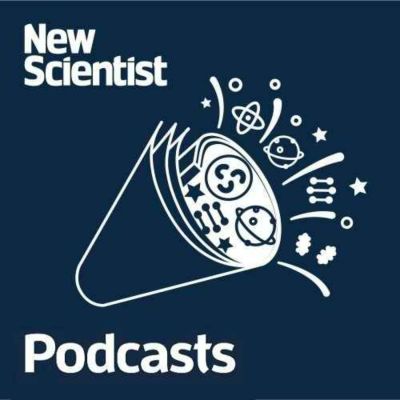Podcasts for the insatiably curious by the world’s most popular weekly science magazine. Everything from the latest science and technology news to the big-picture questions about life, the universe and what it means to be human.For more visit newscientist.com/podcasts Hosted on Acast. See acast.com/privacy for more information.
https://www.newscientist.com/
Gesamtlänge aller Episoden: 5 days 11 hours 4 minutes
CultureLab: Jen Gunter on the taboo science of menstruation
Half of the human population undergoes the menstrual cycle for a significant proportion of their lifetimes, yet periods remain a taboo topic in public and private life. And that makes it harder both to prioritise necessary scientific research into conditions like endometriosis and for people to understand the basics of how their bodies work.
Blood: The Science, Medicine, and Mythology of Menstruation is gynaecologist Jen Gunter’s latest book...
episode 244: Weekly: Miniature livers made from lymph nodes in groundbreaking medical procedure
#244
Researchers have successfully turned lymph nodes into miniature livers that help filter the blood of mice, pigs and other animals – and now, trials are beginning in humans. If successful, the groundbreaking medical procedure could prove life-saving for thousands of people waiting for liver transplants around the world...
Escape Pod: #8 Escape from predators and escape from the planet
This is a re-airing of a podcast originally released in March 2021.
From beetle explosions to the deep dark depths of the ocean, this episode is all about escape.
The team discusses the amazing (and sometimes disgusting) way bombardier beetles escape predators.
They explain what it takes for an object to reach escape velocity, celebrating the mathematical mind of Katherine Johnson while they’re at it...
episode 243: Weekly: Immune system treatment makes old mice seem young again; new black hole image; unexploded bombs are becoming more dangerous
#243
As we age our immune systems do too, making us less able to fight infections and more prone to chronic inflammation. But a team of scientists has been able to reverse these effects in mice, rejuvenating their immune systems by targeting their stem cells. But there’s a long road to trying the same thing in humans...
CultureLab: Stranded on a fantastical planet: The strange creatures of Scavengers Reign
Fish you wear like a gas mask, moss that turns a robot sentient and critters that will eat your rash – all these oddities and more cohabit on the planet Vesta, the setting for the animated miniseries Scavengers Reign, where a group of human space travellers must innovate with what they find in the landscape to survive. While all this sounds fantastical, there are many parallels with Earth’s ecosystem and the way we regularly borrow technology from the natural world...
episode 242: Weekly: How declining birth rates could shake up society; Humanoid robots; Top prize in mathematics
#242
Human population growth is coming to an end. The global population is expected to peak between 2060 and 2080, then start falling. Many countries will have much lower birth rates than would be needed to support ageing populations. These demographic projections have major implications for the way our societies function, including immigration and transportation, and what kinds of policies and systems we need...
#7 Speed: From the quickest animal in the world to the fastest supercomputer
This is a re-airing of a podcast originally released in February 2021.
From the quickest animal in the world to the fastest supercomputer, this episode is all about speed.
Opening with the cries of the peregrine falcon, the team finds out how the bird has evolved to endure flying at more than 200mph.
Then they explain how scientists, starting from Galileo, attempted to measure the speed limit of the universe, the speed of light, and how Einstein understood what it meant...
episode 241: Weekly: Gaza’s impending long-term health crisis
#241
More than 2 million Palestinians in Gaza face widespread hunger, disease and injury as the war quickly becomes the worst humanitarian crisis in modern memory. Even once the war ends, the devastating physical and emotional health consequences will be felt for many years to come, especially by children. And aid groups like UNICEF and the World Health Organization have no long-term plans to meet the post-war health needs of the population...
CultureLab: Rebecca Boyle on how the moon transformed Earth and made us who we are
There’s no moon like our moon. A celestial body twinned with Earth, the moon guides the tides, stabilises our climate, leads the rhythms of animal behaviour and has long been a source of wonder and awe.
Our Moon: How Earth's Celestial Companion Transformed the Planet, Guided Evolution, and Made Us Who We Are, is a new book from science journalist Rebecca Boyle...
episode 240: Weekly: Woolly mammoth breakthrough?; The Anthropocene rejected; Bumblebee culture
#240
A major step has been made toward bringing woolly mammoths back from extinction – sort of. The company Colossal has the ambitious goal of bringing its first baby mammoth into the world by 2028. And its newest advance, announced this week, is in turning adult Asian elephant cells into stem cells. But it’s still a long way from here to the company’s vision of cold-adapted elephants fighting climate change in the Arctic – or even that 2028 baby mammoth...
